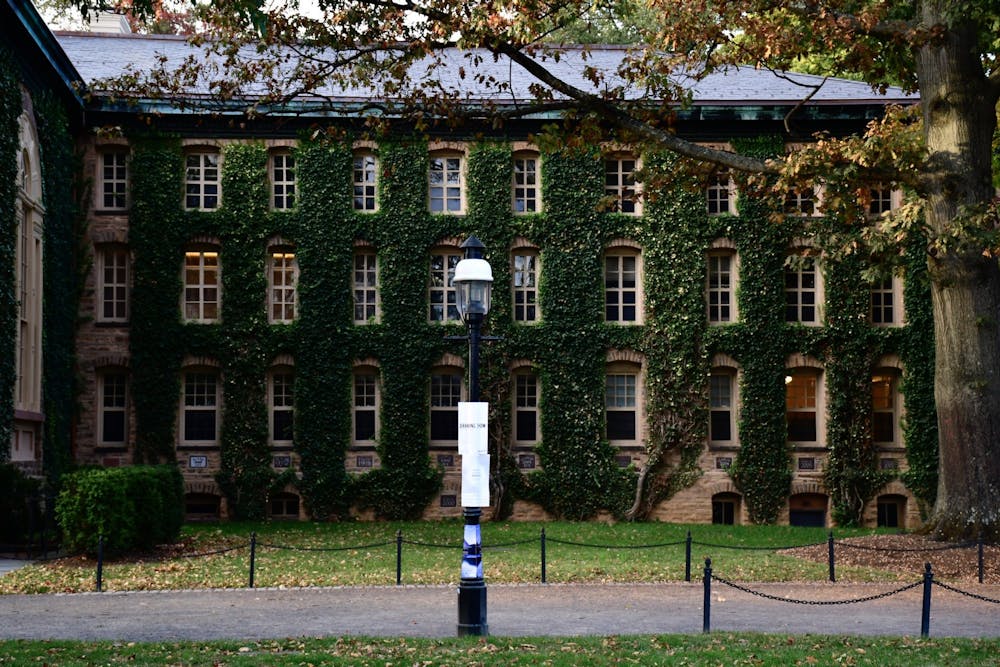On Sept. 8, the University announced a new financial benefit package intended to assist employees with unprecedented child care costs over the next four months. The package is a temporary expansion of the Employee Child Care Assistance Program (ECCAP) and grants a one-time lump payment to faculty and staff members who meet certain requirements.
While ECCAP normally only helps cover eligible employees’ child care needs for “prekindergarten-aged children,” the new program’s conditions state that the child can qualify if they are no older than 13. Employees are eligible for the annual program if their total household income does not exceed $130,000 — an amount increased to $200,000 for the purposes of the new expansion.
The temporary addition is meant to help “employees pay for child care, Internet, computer and electronic equipment, or other related expenses necessary to support education at home for their children while they are working,” the announcement read.
Under the new program, employees may be eligible for a one-time payment of up to $2,667, meant to last for a four-month period. Conversely, under the regular ECCAP, employees can receive up to $8,000/year for a two-child home, if their income totals $65,000 or below.
In addition to the child’s age and the total household income prerequisites, to qualify for the new package, the employee must work for Princeton “regularly at least the equivalent of two full days per week, on or off campus” from Sept. 1 to Dec. 31.
The application also places limits on the employee’s spouse “or child’s other biological parent.” The co-parent must work “at least 20 hours each week,” be a “full-time student,“ be “fully disabled,” or not live in the area to provide care for the child. These spousal requirements are similar to those for the regular ECCAP.

Forrest Meggers, an assistant professor of architecture whose 5-year-old daughter Luna spoke with The Daily Princetonian in the spring, took issue with the limitations concerning employees’ spouses.
“I’m pretty disappointed that Princeton thinks that if a spouse isn’t working, then their time is by default just for child care, and they should not be eligible for any support,” he told the ‘Prince.’
Meggers explained that, in his view, the spousal requirements are particularly unfair given the maximum allowed income to qualify for the program.
“I find it laughable that people who make up to $200,000 are eligible for assistance when they could literally pay for an assistant,” he continued. “Meanwhile, because my wife doesn’t work more than 20 hours per week, we are not eligible — she is co-president of the Community Park School PTA and has been managing all the parents’ anxiety and teachers’ and admins’ risk assessments on more Zooms than me.”

The result of the requirements, he believes, is such that “potentially, someone who has substantially more income than us and maybe just one — not four — children at home would be eligible for assistance.”
Still, Meggers emphasized, “I’m not complaining about it.”
“I think there are much larger inequities globally and in our community than worrying whether Princeton is giving us adequate bonus privileges,” he explained.
For Paul Frymer, another parent of young children and a professor in the politics department, the temporary expansion is a positive step from the University.
“My general thoughts on the program are positive in the sense that they are doing it, and it will certainly help those who use it,” wrote Frymer to the ‘Prince.’ Frymer himself has chosen to send his child to the University NOW Day Nursery, which reopened in August. He does so while “recognizing the risks, and hoping that the various benefits outweigh the risks.”
Still, he said that for many University-affiliated parents, financial resources are not the only concern when it comes to child care in the time of COVID-19.
“For many people I know, the issue is not just about money, but about finding a person they trust — in the health sense — to provide child care,” he explained. “Many people struggle with whether to isolate in some kind of bubble — how much contact is the child care provider having with others? The level of concern people have varies.”
“So the financial benefit is important, but for a significant number of people, it does not ultimately resolve the problem,” he added.
In Frymer’s view, while there may not be a clear method by which the University could resolve this latter problem, his hope is that the University remains “sensitive to those situations in which a financial remedy is not sufficient.”
The deadline to submit an application for the expanded program is Oct. 15, 2020.








